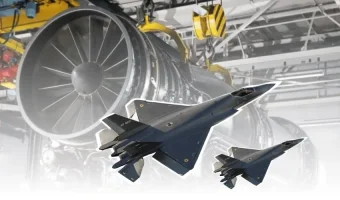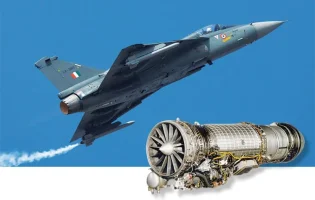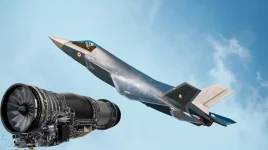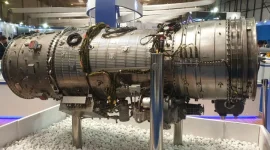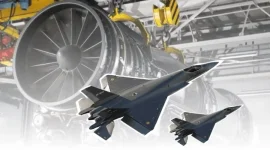- Views: 6K
- Replies: 30
The Gas Turbine Research Establishment (GTRE), the Indian defence research body responsible for developing indigenous jet engines, is aiming for a major breakthrough in India's defence capabilities.
According to a GTRE official once the Dry Kaveri engine with an afterburner section successfully completes testing on a flying testbed, GTRE will seek government funding to develop a more powerful 90 kN variant of the Kaveri engine. This enhanced engine is intended to replace the F-404 engines currently powering the Tejas Mk1A fighter jets within the next decade.
The primary goal of this development is to create a new generation of Kaveri engines capable of generating 20-25% more thrust than the existing Dry Kaveri engine. This increased power will be achieved by refining the core of the Kaveri engine, which is currently under development.
Once validated, this enhanced core will be integrated with a new afterburner section, enabling the engine to produce 90 kN of thrust, making it a suitable replacement for the F-404 engines in the Tejas Mk1A fleet.
The Indian Air Force (IAF) plans to induct over 220 Tejas Mk1 and Mk1A jets over the next 7-8 years. The new Kaveri engine is intended to replace the F-404 engines as these jets undergo mid-life upgrades by 2035, well within the projected service life of the aircraft.
The Tejas Mk1A, slated to enter service in 2025, is expected to require new engines by 2035 to maintain operational efficiency. Fighter jets typically undergo approximately 3.5 engine changes over their 40-year service life, and the Tejas Mk1A will be no exception. GTRE aims to have its new Kaveri engine ready for this transition, ensuring long-term sustainability for India's indigenous fighter fleet.
The proposed Kaveri engine would not only provide increased power but also offer better performance in demanding conditions. Unlike the F-404 engines, which experience a 7-8% power degradation in hot conditions, the Kaveri engine is designed to be flat-rated, maintaining its thrust capabilities even in extreme heat and high-altitude environments typical of India's operational needs.
The proposed Kaveri 90 kN engine is expected to be a significant boost for the Tejas Mk1A program. By replacing the F-404 engines during the mid-life upgrade of these fighter jets, it will help keep them operational for several decades.
As the IAF plans to induct a large number of Tejas jets, having a domestically developed, reliable, and powerful engine will be crucial to the long-term success of the Tejas program and India's pursuit of self-reliance in defence technology.

